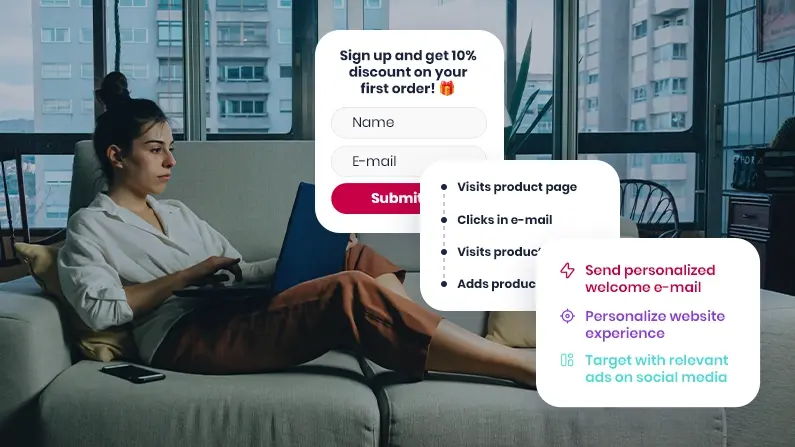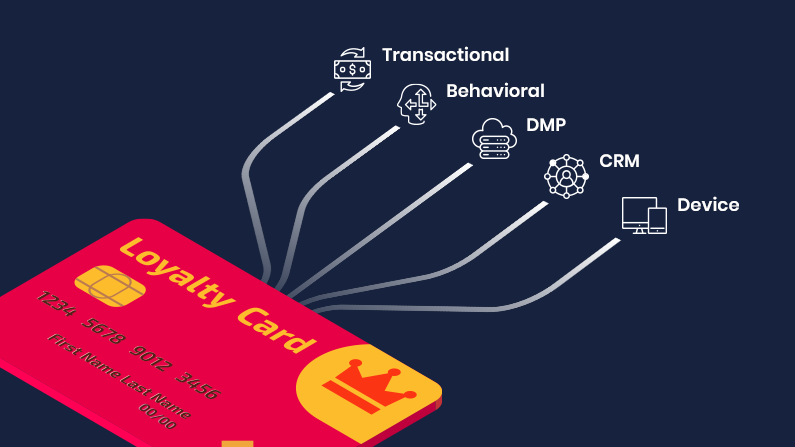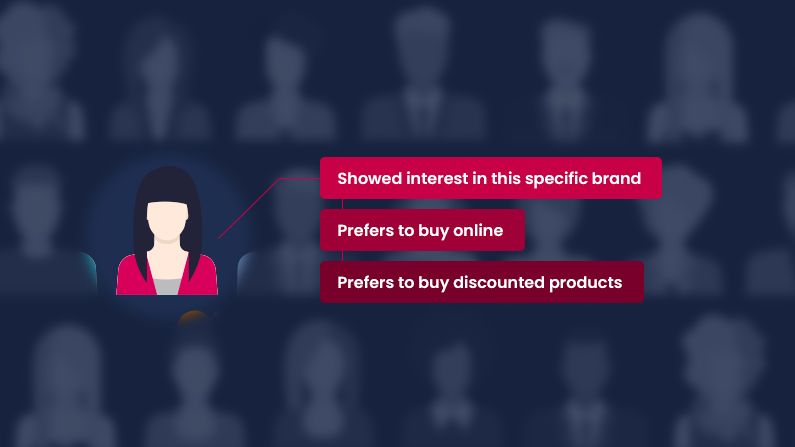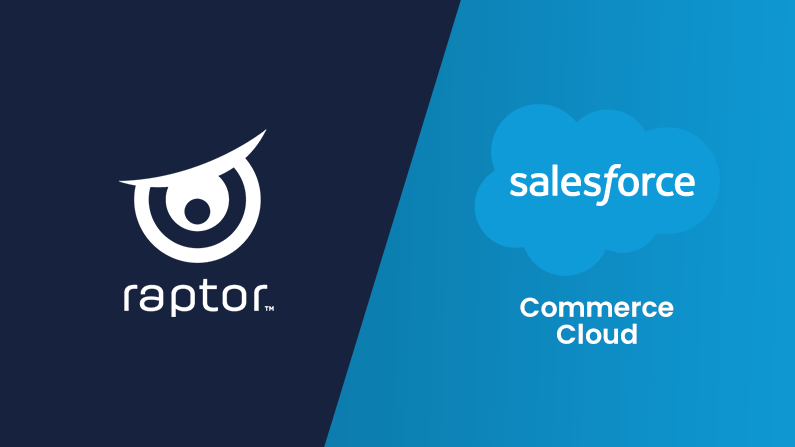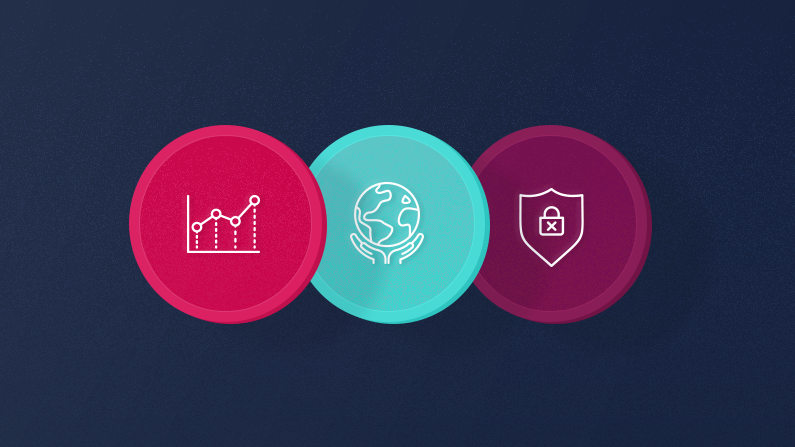Customer Data Platform – A key element in your omnichannel strategy
Oct 11, 2022 | Customer Data Platform
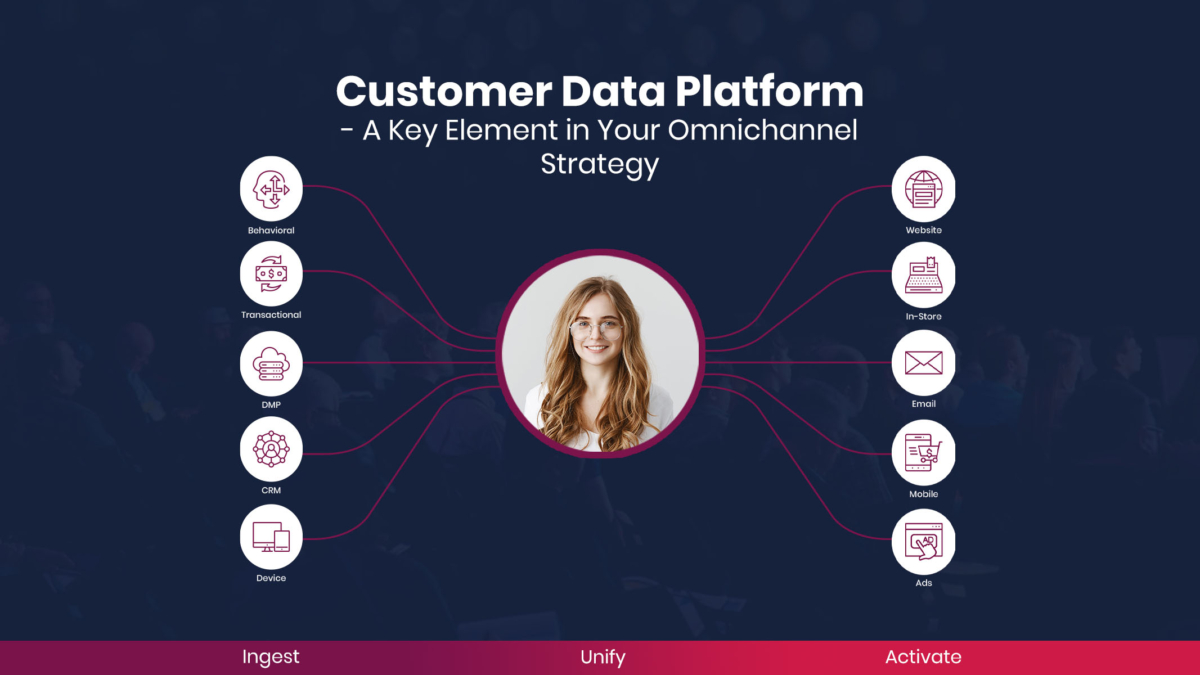
But how do you solve this challenge?
By gathering all your customer data in one place, to get a full overview of every single customer’s interaction with your brand across all channels, devices, and platforms.
Data silos are the omnichannel killer
The number of different tools, channels, technologies that companies have with first-party customer data is increasing every year, which makes it harder and more difficult to create a Single Customer View.
The problem happens when these channels, tools, and platforms are isolated from each other and the rest of the tech stack. This means that the data stays in the individual channels, tools, and platforms which gives an incomplete view of the customer’s interactions with a company’s touchpoints – this applies both online and offline.
When customer data is isolated, you can easily lose track of your customer’s journey and interactions with your company, and you are for example not aware that a customer has already bought the product from your physical store when you target the customer online.
You are simply not able to deliver relevant and personalized marketing if you have a fractured view of your customers.
That is why you need a Customer Data Platform.
What is a Customer Data Platform
A Customer Data Platform allows you to consolidate first-party behavioral data across all customer touchpoints, to create a Single Customer View. This makes you able to actively use all the collected customer data in unity to deliver consistent messages through all channels.
In a Customer Data Platform, you can unify all your collected data from every channel and customer touchpoint such as Email, SoMe, CRM, POS, ERP, DMP, etc. – into one platform.
So, a Customer Data Platform allows you to unite customer data from multiple channels and use it actively to create advanced audience segments which then can be activated in all available channels.
Single Customer View
With a Single Customer View, you can also track whether the individual customer has purchased a product in your physical store, so you e.g. don’t spend your online marketing campaigns targeting a customer that has already purchased a specific product offline.
All the information you have collected about your customers is stored in one place, and you don’t have to look in various systems, to see how engaged the customer has been with your brand.
A single customer view is especially important when you engage with your customers through multiple channels. Since customers expect consistent messaging based on their preferences – this allows you to be more precise in your targeting as well as being able to personalize the customer journey.
Achieving a Single Customer View, without a Customer Data Platform is nearly impossible.
Profile Unification
To recognize a customer across online channels, offline sources, devices, and platforms you need a connection in the form of unique identity markers. Unify data sources based on Raptor User Profiles, which is a keychain technology tracing and combining user IDs across various data sources, such as e-mail address, cookie-, device-, user-, and token ID.
Companies with loyalty clubs have an advantage when it comes to connecting offline and online interactions to the same customer because they have created an additional identity marker. When an offline customer registers his purchase in your loyalty club, it’s possible to recognize the customer whenever he interacts with your brand through digital channels.
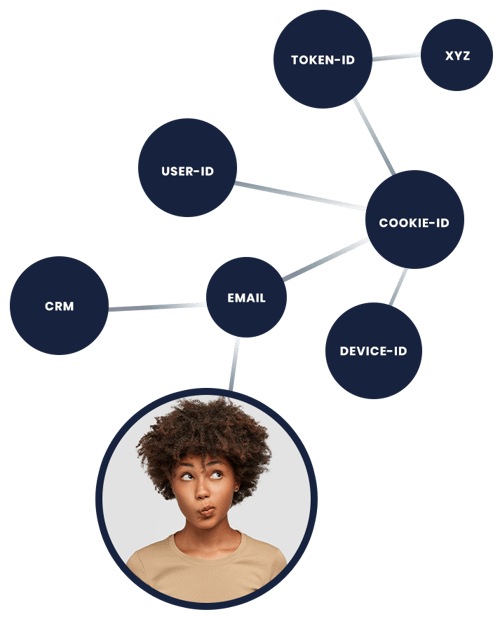
Audience Builder
The Raptor audience builder provides operational access to the Customer Data Platform. This is where strategic business logics is incorporated and defined by available customer data from various channels.
A Customer Data Platform’s core output should lead to experiences that meet or exceed customer expectations while delivering measurable business value. While this primarily requires more efficient data management, it must also include tools for:
- Creating and managing rule-based audiences/segments
- Orchestrating cross-channel campaigns
- Real-time activation of audiences through all available channels
- Advanced segmentation features that include automated segment discovery or propensity models
Read more: CDP Buyers Guide
Online
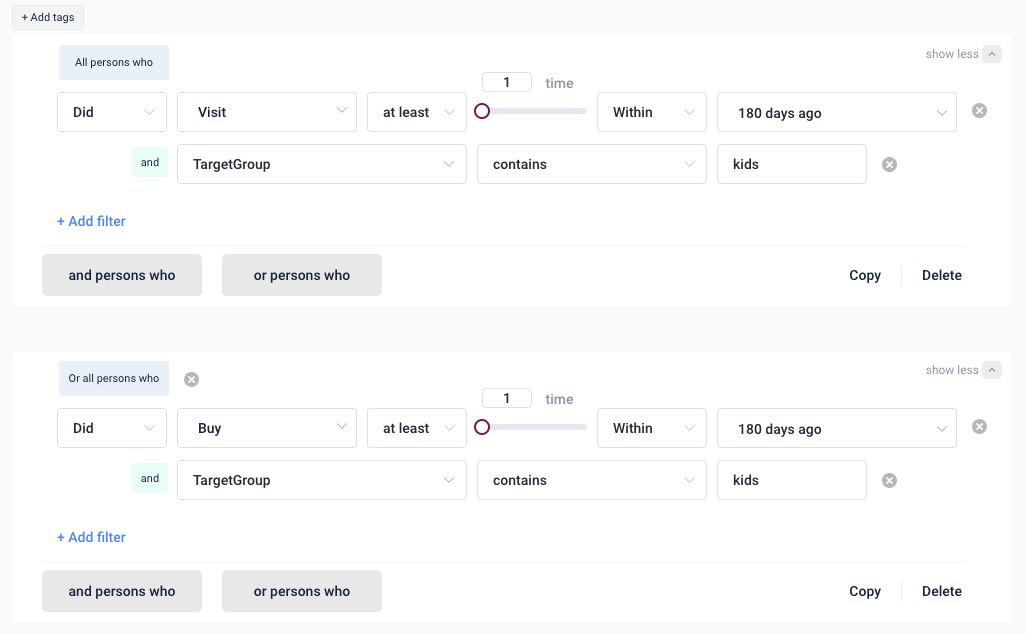
Offline

Consolidated
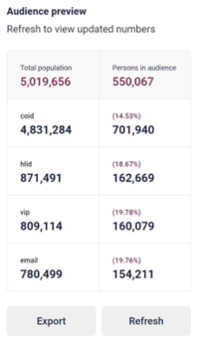
Key takeaways
Being omnichannel is a need. Therefore, you can’t afford to not invest in recognizing your customers across all channels to deliver personalized omnichannel customer experiences. So, the time to act is now if you don’t want to be overthrown by your competitors.
- Customers expect you to know their joint history – accurate profile unification
- Remove irrelevant communication – real-time updates of audiences
- Data-driven decisions require clean data
- First-party data should be considered a competitive advantage
- A Customer Data Platform is a resource not only for your team but the entire company
Related Content
You might also like
For years, marketers have been promised “personalization at scale.” You’ve probably heard it...
Learn More
No reason to sugarcoat it. E-commerce is facing a lot of challenges right now. Chinese giants like...
Learn More
It’s a name that’s impossible to ignore. No matter how hard you try. TEMU. The Chinese giant has...
Learn More
Stakes are incredibly high in fashion. With a global market value of predicted to reach 1.2...
Learn More
Loyalty is key No matter what corner of e-commerce you’re in, everyone can agree on one thing:...
Learn More
Like lots of marketers, you may have been told to find a way to achieve the same (or maybe better!)...
Learn More
In 2020, Google decided to phase out third-party cookies, and they recently added a final nail to...
Learn More
When you work in ecommerce, you know the traffic during Black Friday is certainly higher than...
Learn More
Is your brand using Salesforce Commerce Cloud? And are you wondering what your options are in terms...
Learn More
In recent years, the role of the CMO has changed significantly. It’s much more than just planning...
Learn More
Let us show you what you can achieve with premium personalization


A Raptor expert can share more about the product and answer any questions you have.



